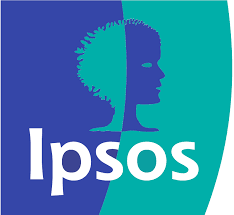New Delhi, July 03, 2018: Ipsos global survey on Transgender People shows that a whopping 80 per cent of Indians polled want government to support and protect Transgender People from discrimination.
Interestingly, across all the 27 markets covered in the survey, more number of people agree that Transgender People should be supported and protected from social ostracism. Globally, India is placed sixth in voicing its concern for Transgender People, preceded by the top five markets of Argentina, Chile, Mexico, Ecuador and Great Britain.
Government support and social acceptance will mitigate discrimination and help Transgender People lead a more dignified life,” says Parijat Chakraborty, Executive Director, Ipsos Public Affairs.

As part of Ipsos’ ongoing commitment to bringing voice to people through data, Ipsos undertook a survey on the topic of transgender people using the monthly global survey vehicle Global Advisor. The data was collected online between October 24th and November 7th, 2017.
The 27 markets covered in the survey were: Argentina, Australia, Belgium, Brazil, Canada, Chile, China, Ecuador, France, Great Britain, Germany, Hungary, India, Italy, Japan, Malaysia, Mexico, Peru, Poland, Russia, Serbia, South Africa, South Korea, Spain, Sweden, Turkey, and the United States of America.
Given the range of (mis)perceptions that exist about transgender people, Ipsos and BuzzFeed, in discussion with the Williams Institute, developed a series of questions in 2016 designed to better understand how people perceive and understand the concept and emergence of transgender individuals.
World is getting more Tolerant of Transgender People
69% Indians say that they are becoming more tolerant of transgender people.
Six in ten people interviewed around the world (59%) say they are becoming more tolerant of transgender people. Perception being strongest in Argentina (78%), Canada (78%), and Great Britain (75%). The least tolerant ones are Hungary (31%), Poland (41%), and Japan (43%).
Transgender People Are A-Natural-Occurrence; For Some a Mental Disease
At least 72% Indians perceive Transgender People as a Natural Occurrence – highest across all the markets surveyed, though 2 in 5 Indians believe transgender people have a form of mental illness.
In Russia, only 18% feel that Transgender is a Natural Occurrence.
Majority across the countries surveyed (52%) believe that transgender people are a natural occurrence. This belief is most commonly held in Spain (64%) and Germany (60%). People in Hungary (44%), Italy (45%), and Japan (48%) are the least likely to believe that transgender people are a natural occurrence.
People in Italy (11%), Spain (9%), Argentina (13%), and France (13%) are least likely to believe that transgender people have a form of mental illness. Among western countries, the United States is most likely to believe that transgender people have a mental illness (32%) and the most likely out of all countries surveyed to believe that transgendered people are committing a sin (32%).
Transgender People have Unique Spiritual Powers
One in two Indians believe that transgender people have Unique Spiritual Powers, highest globally.
“It’s considered a good omen in India to be blessed by Transgender People. And it has almost become a norm in celebrations to allow transgender people to do their jig and to compensate them,” summarizes Chakraborty.
Globally, only 31% believe that transgender people have a special place in society.
Bucking the trend at the top globally is India, where majority (57%) deems transgender people a special place in society, followed by Ecuador (48%) and South Africa (38%). Only one in three in US and one in four in the UK feel that transgender people have a special place in society.
Research Considerations and Proximity to Transgender People
It must be acknowledged here that there are myriad challenges in undertaking research on this potentially sensitive and low-information topic. Most pressing was the challenge of the word “transgender” itself, which is widely used in English and Hijra or eunuch in Hindi.
To ensure as much clarity as possible, Ipsos (in discussion with The Williams Institute and BuzzFeed News, in 2016) developed questions using the phrase “people who dress and live as one sex even though they were born another” which is used throughout the survey instead of the word “transgender” or any translation thereof. This is not the only challenge associated with this kind of survey research, however, and attempting to understand public awareness of and proximity to transgender individuals is equally challenging.
Methodology
These are the findings of an Ipsos survey conducted between October 24th and November 7th, 2017. The survey instrument is conducted monthly in 27 countries around the world.
For the results of the survey presented herein, the total sample included 19,747 adults aged 18-64 in the US and Canada, and age 16-64 in all other countries, were interviewed.
The precision of Ipsos online polls are calculated using a credibility interval with a poll of 1,000 accurate to +/- 3.1 percentage points and of 500 accurate to +/- 4.5 percentage points. For more information on the Ipsos use of credibility intervals, please visit the Ipsos website.
About Ipsos Public Affairs
Ipsos Public Affairs teams around the world conduct research on public policy issues and on the attitudes and behaviours of citizens and consumers. We also conduct public opinion research and elite stakeholder, corporate, and media opinion research. Our goal is to help our clients manage issues, advance reputations, determine and pinpoint shifts in attitude and opinion, and enhance communications.
We provide clients with information that helps them understand how they can build efficient and effective policies, programs, communications strategies, and marketing initiatives.
About Ipsos
Ipsos ranks third in the global research industry. With a strong presence in 87 countries, Ipsos employs more than 16,000 people and has the ability to conduct research programs in more than 100 countries. Founded in France in 1975, Ipsos is controlled and managed by research professionals. They have built a solid Group around a multi-specialist positioning – Media and advertising research; Marketing research; Client and employee relationship management; Opinion & social research; Mobile, Online, Offline data collection and delivery -. Ipsos has been listed on the Paris Stock Exchange since 1999.
